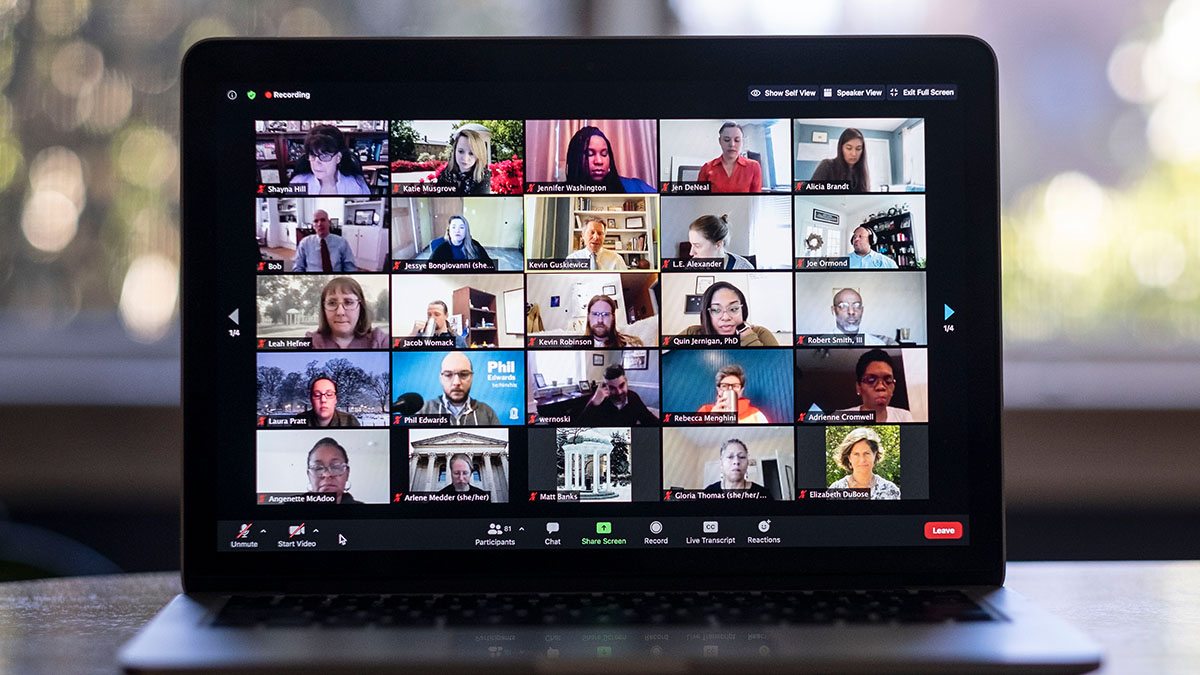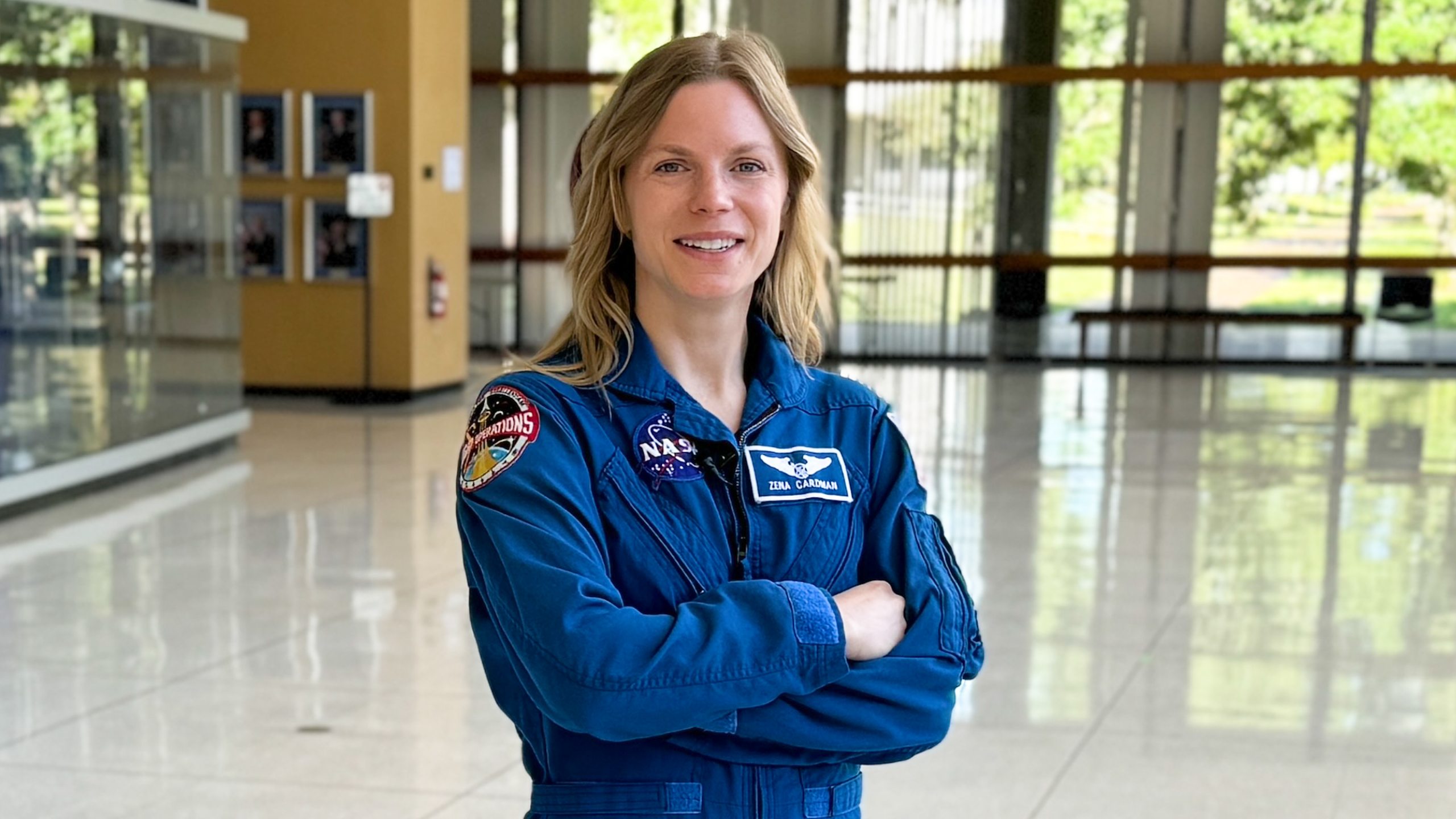Employee Forum delegates hear budget, spring planning updates
The delegates also heard the first reading of a resolution to advocate for additional pay for employees who may be doing additional work during the pandemic.

At Wednesday’s virtual Employee Forum meeting, delegates heard updates on the University’s budget, spring semester planning and COVID-19 testing.
Chancellor Kevin M. Guskiewicz said campus leaders are making good progress on the budget. Every revenue source has been threatened by the pandemic, and the University is working to protect its mission and its people, he said.
The University has implemented a 1.5% reduction to certain central personnel funds and a 7.5% reduction to certain central operating funds across schools and units for FY20-21, with another 1.5% reduction to personnel funds and a 7.5% reduction to operating funds across schools in FY21-22.
“We don’t know what the future holds yet, and we must ensure our financial stability, given this uncertainty,” Guskiewicz said. “It is the responsible thing to do, and we’re working through this in a collaborative way.”
In good news, Guskiewicz said enrollment remains strong, research funding is staying consistently strong and the Campaign for Carolina remains on a positive trajectory with a record-setting December.
Limited in-person undergraduate classes — less than 20% — will begin on Monday, Feb. 8, as planned.
While there’s no one solution to prevent the spread of the coronavirus, Guskiewicz said, there has been no indication of transmission of the virus in campus facilities beyond cases in residence halls, he said.
Through testing prior to students arriving on campus for the start of the semester, 168 cases were identified, Guskiewicz said. Those students did not come to campus until it was safe to do so.
As of Feb. 2, the Carolina Together Testing Program has run about 35,000 tests, said Provost Bob Blouin, adding that the testing program is an important piece of the University’s infrastructure to keep the campus safe.
The University continues to advocate to the North Carolina Department of Health and Human Services for employees who are frontline essential staff to receive the COVID-19 vaccine with other educators, including faculty who will be teaching in-person classes on campus.
Moving forward with Carolina Next
The University’s strategic plan, Carolina Next: Innovations for Public Good, was endorsed by the University’s Board of Trustees last January, shortly before the pandemic began.
Blouin said the pandemic, the Black Lives Matter movement and racial tensions across the country, in the state and on campus led the University to make adjustments to key initiatives in the plan.
“A lot of changes have been made. We’ve tried to COVID-ize it and incorporate much of the learning that has been gathering as a result of new discussions with Black faculty, staff and students,” Blouin said.
He noted that updates were made to the first strategic initiative, Build our Community Together, along with work on others, including the Promote Democracy, Discover and Optimize Operations initiatives.
To see a more detailed story about Carolina Next and the recent updates, read this Q and A with Provost Bob Blouin and Assistant Provost for Institutional Research and Assessment Lynn Williford.
Parking enforcement update
During the pandemic, the University switched from hang tags to virtual permits using vehicle license plates, said Cheryl Stout, director of transportation and parking.
Stout reminded employees to keep license plates visible by not backing into or pulling through parking spaces, making it difficult for parking enforcement officers to see the plates.
She added that weeknight parking permits are now effective at 4 p.m., rather than 5 p.m.
As a result of the pandemic, the University also introduced daily parking permit options and revised how permits are distributed to employees and students who may be on the waiting list for a permit, she said.
In other news:
- The Employee Forum heard the first reading of a resolution to advocate that the University of North Carolina System Office expand the financial tools available to retroactively compensate SHRA employees on a temporary basis for an additional work duties undertaken during the COVID-19 pandemic, along with expanding EHRA non-faculty salary adjustments to include increases for the work. The resolution also seeks to advocate for alternative compensation systems. A revised version of the resolution will be considered for approval at the Forum’s next meeting.
- A new, more user-friendly and intuitive electronic policy management system will soon replace PolicyStat, the University’s current system, said Jennifer DeNeal, associate director, ethics and policy office. Beginning in January, monthly updates from the Policy Review Committee meetings are posted. DeNeal also noted several virtual training webinars and videos about Carolina’s policy process that can be found on the training page.
- Guskiewicz encouraged delegates to share nominations for the annual Massey Awards, which are given to employees for unusual, meritorious and superior contributions to the University. The deadline for submissions is Feb. 26.
- Employees are encouraged to participate in Friday’s American Heart Association National Wear Red Day to bring awareness to cardiovascular disease, the leading killer of women, said Jessica Pyjas, work/life and wellness program manager.
- Mark your calendar for this year’s Total WellBeing Expo, a weeklong virtual event set for March 8-12.




